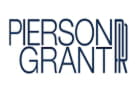GAINESVILLE, Fla. and CAMBRIDGE, Mass., May 07, 2019 (GLOBE NEWSWIRE) -- Applied Genetic Technologies Corporation (Nasdaq: AGTC), a biotechnology company conducting human clinical trials of adeno-associated virus (AAV)-based gene therapies for the treatment of rare diseases, today announced financial results for the quarter ended March 31, 2019.
“Completing enrollment in the dose escalation portion of our Phase 1/2 trial in patients with achromatopsia due to mutations in the CNGB3 gene and the expansion cohort of our Phase 1/2 trial in patients with X-linked retinitis pigmentosa demonstrates our clinical development progress and keeps us on track to report multiple data sets in the second half of 2019,” said Sue Washer, President and CEO of AGTC. “Achieving these clinical milestones reflects our continued progress and commitment to developing new approaches to treat inherited retinal diseases positioning AGTC well to create value for patients and shareholders.”
AGTC Clinical Program Update
AGTC remains on track to meet its current enrollment milestones across its three Phase 1/2 clinical programs:
X-linked Retinitis Pigmentosa (XLRP) Phase 1/2 Clinical Trial
To date, AGTC has completed enrollment of ten patients in the dose escalation portion of the XLRP trial and six patients in the expansion portion of the trial. The Company expects to:
- Provide interim six-month data for the dose escalation group in the third quarter of 2019; and
- Provide interim six-month data for the expansion group in the fourth quarter of 2019.
Achromatopsia (ACHM) Phase 1/2 Clinical Trials
The Company is enrolling patients in two parallel Phase 1/2 clinical trials of its product candidates for ACHM caused by mutations in the two most common ACHM genes, CNGB3 and CNGA3. To date, AGTC has enrolled twelve patients in the ACHM CNGB3 trial and seven patients in the ACHM CNGA3 trial. The Company expects to:
- Complete enrollment of the dose escalation portion of the CNGA3 trial in the second quarter of 2019;
- Provide topline interim six-month data for the dose escalation portions of the CNGB3 and CNGA3 trials in the fourth quarter of 2019; and
- Complete enrollment of the expansion groups of the CNGB3 and CNGA3 trials in the second half of 2019 and provide topline interim six-month data in the first half of 2020.
Optogenetic Program
Through the AGTC-Bionic Sight collaboration, the companies are pursuing the development of an innovative optogenetic therapy to treat patients with advanced retinal disease. This potential therapy utilizes AGTC's broad experience in gene therapy and ophthalmology and Bionic Sight's patented neural coding device. Bionic Sight filed an IND for the program in advance of completing the final formulation and testing of clinical trial material produced by their contract manufacturing organization. The U.S. Food and Drug Administration (FDA) has put the trial on hold pending full review of the final testing to assure comparability to the material in the toxicology study. Bionic Sight expects clearance of the IND and initiation of the Phase 1/2 clinical trial in the second half of 2019.
Financial Results for the Three and Nine Months Ended March 31, 2019
Revenue: Total revenue for the three and nine months ended March 31, 2019 were $21.3 million and $41.3 million, respectively, compared to $3.6 million and $18.8 million in the comparable periods in 2018. The increase of $22.5 million for the nine-month period was primarily due to recognizing revenue of $20.4 million as a result of the termination of the Collaboration Agreement with Biogen, and recognizing revenue of $8.3 million associated with the receipt of a $10.0 million milestone payment from Biogen during the first quarter of fiscal year 2019, partially offset by decreased license and related service revenue due to the Company’s revised pattern of revenue recognition under ASC 606, Revenue from Contracts with Customers.
R&D Expenses: Research and development expenses for the three and nine months ended March 31, 2019 were $7.2 million and $24.9 million, respectively, compared to $7.4 million and $23.4 million in the comparable periods in 2018. The increase of $1.5 million for the nine-month period was primarily due to incurring sublicense expense of $2.3 million associated with receiving a milestone payment from Biogen and increased employee-related costs, partially offset by decreased pre-clinical R&D spending.
G&A Expenses: General and administrative expenses for the three and nine months ended March 31, 2019 were $3.1 million and $9.3 million, respectively, compared to $3.9 million and $11.0 million for comparable periods in 2018. The decrease was primarily driven by decreased employee-related and share-based compensation expenses.
Net Income: Net income for the three and nine months ended March 31, 2019 was $11.5 million and $8.5 million, respectively, compared to a net loss of $8.1 million and $14.7 million in the comparable periods in 2018.
Financial Guidance: As of March 31, 2019, the Company's cash, cash equivalents, and investments amounted to $89.2 million. The Company believes these funds will be sufficient to allow AGTC to generate data from its ongoing clinical programs, to move the pre-clinical optogenetic program in collaboration with Bionic Sight into the clinic and fund the currently planned research and discovery programs for approximately two years. The Company expects total cash, cash equivalents and investments as of June 30, 2019 to be between $75 and $80 million.
About AGTC
AGTC is a clinical-stage biotechnology company that uses a proprietary gene therapy platform to develop transformational genetic therapies for patients suffering from rare and debilitating diseases. Its initial focus is in the field of ophthalmology, where it has active clinical trials in X-linked retinitis pigmentosa (XLRP), achromatopsia (ACHM CNGB3 & ACHM CNGA3) and X-linked retinoschisis (XLRS). In addition to its clinical trials, AGTC has preclinical programs in optogenetics, adrenoleukodystrophy (ALD), which is a disease of the central nervous system (CNS), and other ophthalmology and otology indications. The optogenetics program is being developed in collaboration with Bionic Sight. In addition to its product pipeline, AGTC has a significant intellectual property portfolio and extensive expertise in the design of gene therapy products including capsids, promoters and expression cassettes, as well as expertise in the formulation, manufacture and physical delivery of gene therapy products.
About Achromatopsia (ACHM)
Achromatopsia is an inherited retinal disease, which is present from birth and is characterized by the lack of cone photoreceptor function. The condition results in markedly reduced visual acuity, extreme light sensitivity causing day blindness, and complete loss of color discrimination. Best-corrected visual acuity in persons affected by achromatopsia, even under subdued light conditions, is usually about 20/200, a level at which people are considered legally blind.
About X-linked Retinitis Pigmentosa (XLRP)
XLRP is an inherited condition that causes progressive vision loss in boys and young men. Characteristics of the disease include night blindness in early childhood and progressive constriction of the visual field. In general, XLRP patients experience a gradual decline in visual acuity over the disease course, which results in legal blindness around the 4th decade of life. AGTC was granted FDA orphan drug designation in 2017, as well as European Commission orphan medicinal product designation in 2016, for its gene therapy product candidate to treat XLRP caused by mutations in the RPGR gene.
About X-linked Retinoschisis (XLRS)
XLRS is an inherited retinal disease caused by mutations in the RS1 gene, which encodes the retinoschisin protein. It is characterized by abnormal splitting of the layers of the retina, resulting in poor visual acuity in young boys, which can progress to legal blindness in adult men.
In December 2018, AGTC reported topline interim six-month data from its Phase 1/2 clinical trial in patients with XLRS. Results from the XLRS study supported general safety and tolerability of AGTC’s gene delivery platform but did not demonstrate signs of clinical activity at six-months. A total of 27 subjects were treated and all subjects completed study visits through at least month six. The Company will complete patient monitoring activities on the XLRS program according to the clinical protocol.



















